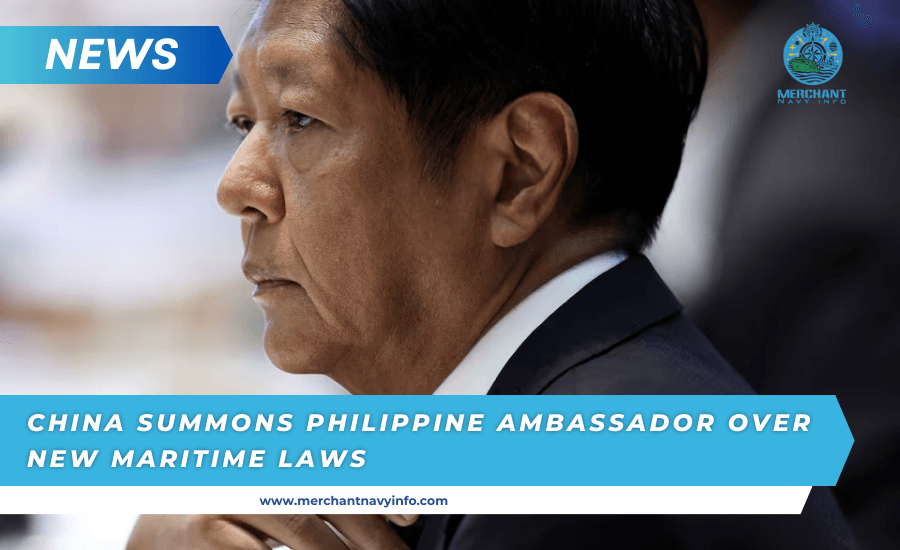
China Summons Philippine Ambassador Over New Maritime Laws
China summoned the Philippine ambassador on Friday to express opposition to two new Philippine laws affirming maritime rights and sovereignty in disputed areas of the South China Sea, the Chinese Foreign Ministry said.
China lodged a “solemn protest” with its ambassador to the Philippines shortly after Philippine President Ferdinand Marcos Jr. signed the Maritime Zones Act and the Archipelago Maritime Lanes Act to strengthen the country’s maritime claims and territorial integrity.
Chinese Foreign Ministry spokesman Mao Ning said the laws “illegally include Scarborough Shoal, most of China’s Nansha Islands and related waters in the Philippine Sea,” using the Chinese names for Scarborough Shoal and the Spratly Islands, respectively. Beijing has rejected a 2016 ruling by the Permanent Court of Arbitration in The Hague in a case brought by Manila that said its extensive maritime claims in the South China Sea had no legal basis.
The United States, an ally of the Philippines, backed the court’s ruling. Marcos said the two laws he signed, which define maritime rights and establish specific sea and air routes, are evidence of a commitment to upholding a rules-based international order and protecting Manila’s right to peacefully exploit resources within its exclusive economic zone.
“Our people, especially fishermen, should be able to continue their livelihoods without any suspicion or harassment,” Marcos said. “We must be able to exploit the mineral and energy resources found on the seabed.”
But Beijing said the laws “seriously infringe” its sovereignty claims over the disputed area. “China urges the Philippines to actively respect China’s territorial sovereignty and maritime rights and interests and immediately stop taking any unilateral measures that could expand the dispute and complicate the situation,” Mao said.
China also has sovereignty disputes with other countries in the region and has enacted national laws involving the South China Sea in the past, such as the 2021 Coast Guard Law that allows China to detain foreigners suspected of intruding into the area.
Beijing uses coast guard vessels to assert its sovereignty claims, often accusing vessels of encroaching on areas of the South China Sea within its neighbors’ exclusive economic zones and has clashed with the Philippines several times over the past year.
Philippine officials acknowledged they face challenges implementing the new law, and one of its authors, Sen. Francis Tolentino, said he did not expect tensions to ease.
“China will not recognize them, but the recognition we will get from the international community will strengthen our position,” Tolentino told a news conference.









